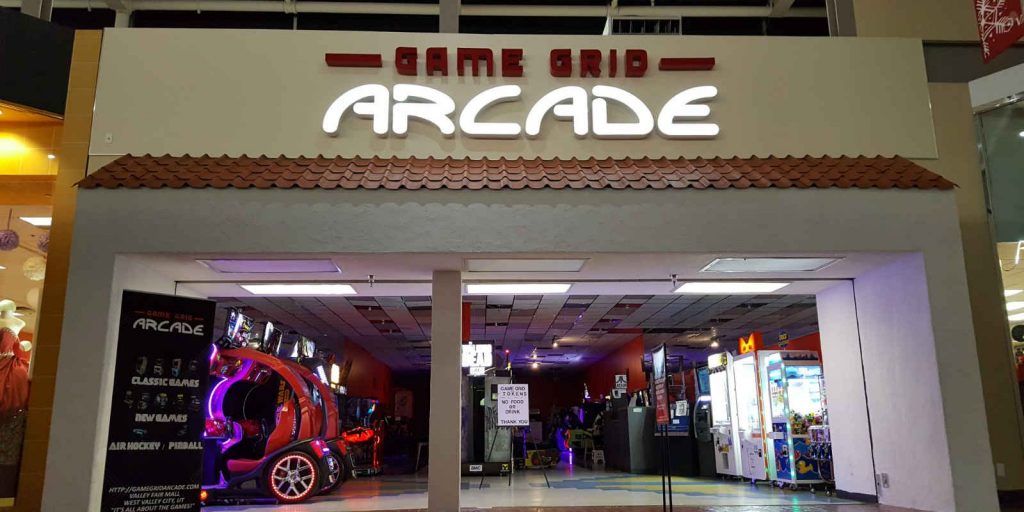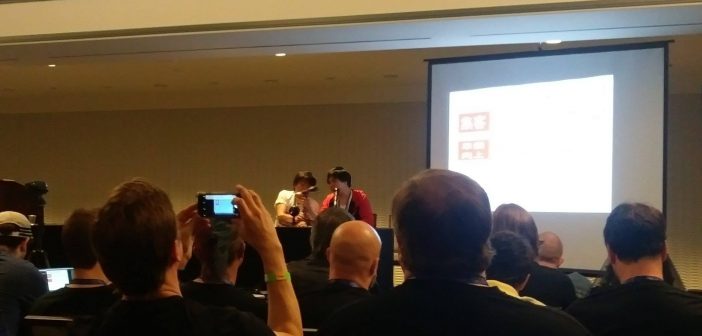An Arcade Book “Sequel”
Passion for Games & Teaching Leads to Game Alamanac
by Adam Pratt, Game Grid Arcade & ArcadeHeroes.com
It has been a busy –– and profitable –– year for the amusement industry and I hope the same has been true for your business specifically. But, as the economy hums along, it’s bringing a new challenge along with it that I hadn’t really dealt with until this year: serious competition.
When I first opened my arcade in 2008, the competitive landscape was a little different. Within the mall was a small, Namco-owned Time Out arcade and a block away was a major FEC operated by Cinemark Cinemas. Other arcades could be found all around the Salt Lake valley, but back then, it wasn’t very common to hear about a new location opening its doors. During the years that followed, especially when the economic downturn hit, I was able to stay open while those other two locations eventually closed up shop. The competitive landscape remained virtually the same (with only an exception here and there) until last year.

Good times in the amusement business is increasing the competition for the entertainment dollar in Adam Pratt’s area. The challenge for him will be to differentiate his mall arcade from the other options available. One idea he’s implementing has to do with certain game titles and cultivating a loyal player community rather than casual drop-ins.
With 2017, the bar/arcade scene really started to hit Salt Lake City. It’s not surprising that we’re among the last regions in the country to embrace the trend given our demographics and laws regarding adult beverages. While I don’t serve alcohol, I’ve been surprised by the anecdotes I’ve heard of how well these bar/arcades have been doing, despite having far fewer games than I have.
This year, we’ve seeing the FEC trend hit the state strong. Dave & Buster’s opened their first location in Utah this past May; Round1USA did the same in August. Then in September, a local bowling alley chain announced that it will open a new location in the very the mall where I’m located. I’d been hearing all year about this possibility, but an official announcement does tend to change things.
I’ve always been pleased to see arcades expanding because more locations means we’ve got a healthy market. Manufacturers and distributors can sell more games and operators should be making more money too (assuming they’ve got the right locations and games). The increased profitability of my business has meant greater financial security for my family, and that I haven’t had to rely as much on that second job to make ends meet.
That’s a nice position to be in, but it is also a precarious one. With each new location that opens nearby, those potential entertainment dollars that can be spent at my location get pulled elsewhere. There are different ways to go about keeping my business unique, but with the larger variety of arcades opening their doors, this becomes increasingly difficult.
Bar/arcades place an almost singular focus on pinball machines, thus being able to stay on top of those releases while drawing that loyal crowd their way. FECs have the capital to get anything seen as trendy before us small fries can, and then there are growing nickel arcades in the area that cover the retro circuit. All of this puts one in a difficult spot!
Despite the prospects of what might happen, I don’t harbor any ill will towards these competitors. Perhaps that’s naive of me, but I’ll hold the course while finding areas where I can improve. I still have a year before the new location opens its doors. There is still time to ponder and plan, although the issue of “should I stay or should I go” will be hanging over me for the next 12 months. Neither option is particularly attractive for a number of reasons, each carrying its own inherent risks. Risk is a part of any business, but with time, things can change.
One place I pulled inspiration from was a panel I attended at California Extreme 2018 in July. It was called “How to Make a Million Dollars From Running an Arcade Business in 2018.” This was framed entirely from a Japanese operator perspective, with Minoru Ikeda, owner of Mikado arcade in Japan, recounting the challenges and experiences of operating a video game-only center in Tokyo. Since I don’t operate ticket redemption, his philosophy really hit home.
While Japan has a very different gaming culture than we do, his ability to operate an arcade without any of the popular UFO Catchers or medal games and turn a profit is quite impressive.
In Japan, manufacturers can force revenue shares on the operators, a practice that has been decimating small arcades because it makes it impossible to turn a profit. He’s been able to withstand that by implementing certain customer-centric ideas (by way of competition and certain games) I hope to try over the next several months.
By the time this issue is published, I hope to have more than one title in place that can help build more of a community of regular players as opposed to relying on casuals who drop by the mall every once in a while to see a movie.
I’ll also be keeping my eyes and ears open around IAAPA 2018 for new ideas. Here’s to a great show!
Adam Pratt is the owner and operator of the Game Grid arcade near Salt Lake City, Utah. He also publishes the Arcade Heroes blog site and serves as an advisor for the web-based game supplier BMI Worldwide. He can be reached at [email protected].





